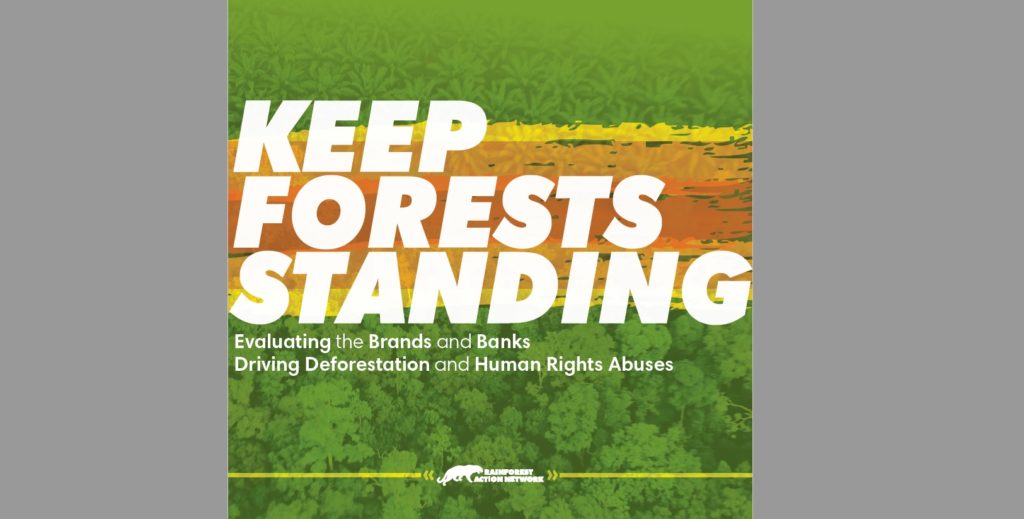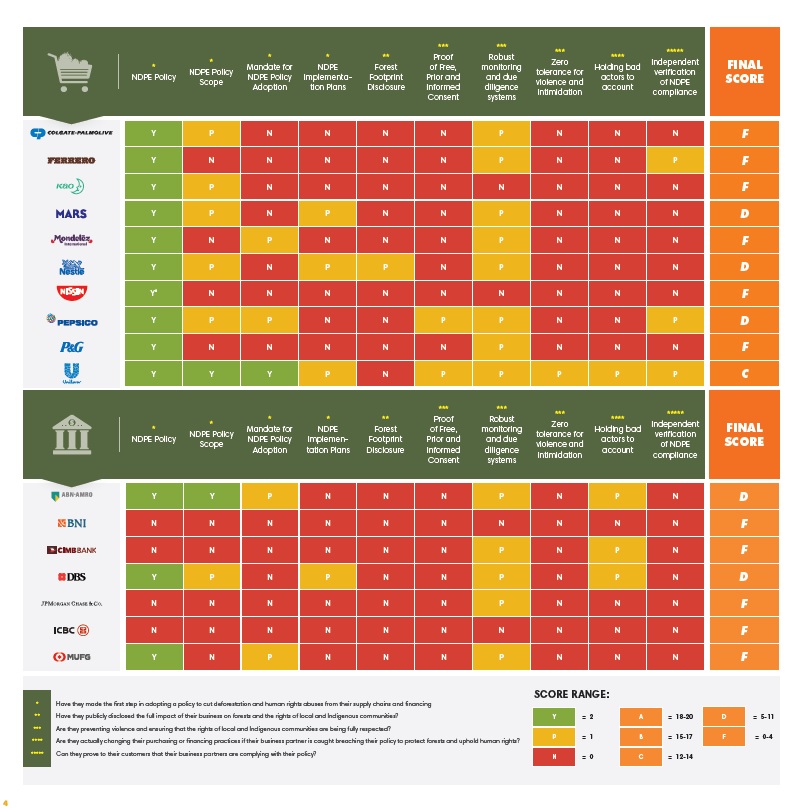Actualités
Major Brands and Banks Failing to Stop Deforestation and Human Rights Abuses, New Scorecard Finds

JPMorgan Chase, BNI and MUFG among those that receive a ‘F” Score
San Francisco, CA – Major multinational brands and banks are failing to stop deforestation and human rights abuses in their business practices finds a new scorecard released by Rainforest Action Network (RAN), titled Keep Forests Standing: Evaluating Brands and Banks Driving Deforestation and Human Rights Abuses.
The evaluation found that while none of the 17 brands and banks have taken adequate action to address their contribution to the destruction of forests, ongoing land grabs, and violence against local and Indigenous communities, a number of the brands and banks performed worse than their peers. Notably, the banks of BNI, CIMB, ICBC, JPMorgan Chase, and MUFG, together with the brands Colgate-Palmolive, Ferrero, Kao, Mondeléz, Nissin Foods, and Procter & Gamble are the worst offenders, receiving a ‘F’ grade in the evaluation.

“A handful of powerful brands and banks have serious influence over the continued destruction of rainforests, the stealing of land and the killing of human rights defenders, and yet they’re doing very little to stop it,” said Daniel Carrillo, Forest Campaign Director, Rainforest Action Network (RAN). “If we want a climate-stable future, we have to keep forests standing. The world has no more time for these corporations to keep passing the buck on the impacts that their business model has on forests and communities.”
Many of these brands and banks have adopted various past commitments and policies to achieve “no deforestation” and uphold Indigenous and human rights in their business practices. However, Indonesia’s rainforests and those all around the world are being burned, clear-cut, and bulldozed every day for commodities like palm oil, pulp, paper, beef, soy, cocoa, and timber. Multinational brands provide the market demand for these products and funding flows from major banks around the world. The 17 evaluated corporations were chosen for their significant influence on these commodity markets.
“From Indonesia to the US, Indigenous and local communities are fighting to protect their lands and forests from companies looking to exploit them without consent. Hundreds of thousands of people around the world are in support and holding these corporations accountable. Companies who don’t take real action are next in line,” said Carrillo.
The evaluation lays out steps that the corporations can take to improve their performance, including adopting a policy to cut deforestation and human rights abuses from their supply chains and financing, publicly disclosing the full impact of their business on forests and the rights of local and Indigenous communities, preventing violence and ensuring that the rights of local and Indigenous communities are being fully respected, and proving that they and their customers and business partners are actually complying with their policies.
Rainforest Action Network will drive action from the banks and brands and provide updates on the progress, or lack thereof, via the web page https://www.ran.org/kfs-scorecard/